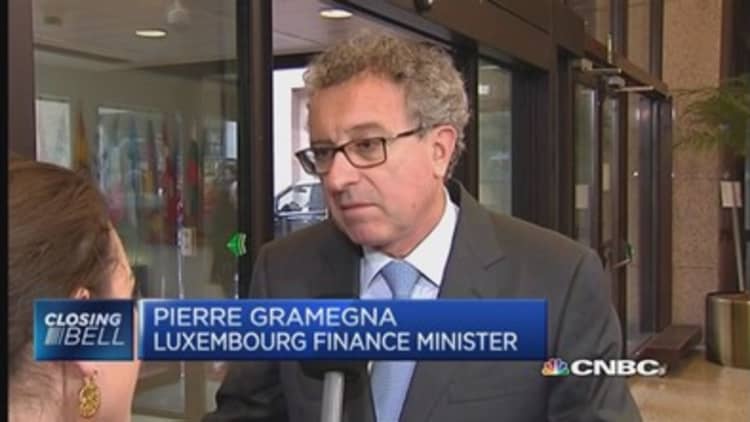



In a further sign of the deteriorating relationship between Athens and Berlin, Greece's Justice Minister suggested that German property in the country could be confiscated to compensate for the Nazi occupation of Greece, according to media reports.
Greek officials believe Germany should compensate the country for damage done during its occupation by the Nazis in World War II, and have waged a long campaign for compensation.
Speaking in a parliamentary debate on the matter on Tuesday, Greek Prime Minister Alexis Tspiras was the latest to take up the mantle, accusing Germany of using "legal tricks" to get out of paying WWII reparations.
"Germany has never properly paid reparations for the damage done to Greece by the Nazi occupation," Tsipras said, according to Reuters. "After the reunification of Germany in 1990, the legal and political conditions were created for this issue to be solved. But since then, German governments chose silence, legal tricks and delay."
He added that the crimes carried out by the Nazis are "still vivid," and argued that Greece has a "moral obligation to remember what the (German) forces did to the country."
At another point in the debate, Justice Minister Nikos Paraskevopoulos suggested the possibility of seizing German assets in Greece to compensate victims of the Nazi occupation, German newspaper Der Spiegel reported.
Germany has repeatedly rejected calls for compensation, saying it has honored all of its war obligations. For example, the country made a payment of 115 million deutschmarks (59 million euros, or $62 million) to Greece in 1960, according to Reuters.
Reacting to the latest calls for compensation on Wednesday, Germany reiterated that stance. "It is our firm belief that questions of reparations and compensation have been legally and politically resolved,'' Steffen Seibert, the spokesman for German Chancellor Angela Merkel, said, according to Reuters. "We should concentrate on current issues and, hopefully what will be a good future," he added.
Aside from a long-standing spat over the war, relations between Greece and Germany (the most indebted economy and the largest economy in the euro zone, respectively) have been at a low ebb for a while.
Germany has been a key driver of austerity measures as part of international bailouts for euro zone countries like Greece which have needed financial assistance. It has made the country very unpopular with the Greek people and new left-wing Greek government, which has campaigned to tear up its bailout program.
No love lost
Despite the Greek government's election pledges, however, it requested a four-month extension to its bailout which, it seems, was reluctantly granted by Germany.
A Reuters report published Wednesday, citing unnamed sources, suggested that some German officials were ready to rebel during a vote on the extension, but were persuaded to give Greece more time by Finance Minister Wolfgang Schaeuble.
Impatience and frustration with Greece is also running high elsewhere in the euro zone, with the head of the Eurogroup of finance ministers, Jeroen Dijsselbloem, telling Greece Monday to stop "time wasting" over reforms that were a condition of the extension.
Time running out
In the meantime, Greece's coffers are running dry. As it faces a cash crunch, Greece could tap into more than half a billion euros of funds sitting in the country's bank rescue fund as it scrambles to find money this month, banking and government sources told Reuters Tuesday.
With its back against the wall financially, economists see Greece as having little room for manouver.
Volker Wieland, an economist and one of Chancellor Merkel's so-called "wise men," told CNBC Wednesday that Greece's situation could deteriorate fast – and that it needed to change its attitude.
"This is a situation which will be unraveling fast if they don't relent from this attitude of 'us against everyone else in the euro,'" he said.
Read MorePlot thickens overthird bailout for Greece
Striking a similar note, analysts at Daiwa Capital Markets said in a note Tuesday that time was running out for Greece and its new government.
"The Eurogroup's ultimatum (to make reforms) is now clear; the question is whether the Greek government wishes and is able to take action. We see the chances as broadly even, not least given the 'lose-lose' situation Tsipras and (Greek Finance Minister) Yanis Varoufakis have put themselves in, which forces them to largely surrender to their creditors or leave the euro," the analysts wrote.
"Either way, the new government seems unlikely to survive beyond the summer, even if the country does scrape through until then as a euro area member."
- By CNBC's Holly Ellyatt, follow her on Twitter @HollyEllyatt. Follow us on Twitter: @CNBCWorld


